I was startled awake in the middle of the night by a strange Egyptian man shouting loudly at me in Arabic.
He seemed angry, but I couldn’t figure out what was going on. Why was he yelling at me? I stared back with confused eyes, only finding the strength to mumble a single word.
“Huh?”
More screaming. More pointing and flailing of arms. A small pack of Egyptian men had surrounded my seat on the bus and, despite the fact that I obviously couldn’t speak their language, they seemed to think that shouting even louder would make me understand.
“Is there a problem?” a local girl across the aisle asked in English. “I was sleeping,” I told her, “and these men just started yelling at me.”
She pointed at my ticket, indicated that I had been sitting in the wrong seat, and let me know that this was very much against the rules. Apparently, bus-goers are very serious about seat assignments here.
The Egyptian mentality takes some getting used to. And after only one week of traveling there, I definitely can’t say that I understand it.
On the local bus in Cairo one day, I struck up a conversation with a lovely young Egyptian woman. Her English was nearly perfect and, after the typical pleasantries about where we were from, her next question was, “What do you think about the people here?”
I thought for a second, and I told her I had met some people who acted extremely aggressive towards me, but that I had also met some of the kindest, most genuine people of all.
She nodded slowly in thought, and then, after a few moments, she looked back at me and said, “Good. Many don’t get to see both sides. That’s the real Egypt.”
This is the Reality of Traveling to Egypt
Though Egypt is a common travel destination for Europeans, Egypt is not the first place most Americans think of when they’re preparing to travel. And to be honest, there’s good reason for it.
Not only is it a bizarre place, far from the reaches of understanding for most Westerners, but tourism in Egypt has dwindled to almost nothing after becoming a conflict zone in recent years. Luckily, that conflict has lessened and now there is very little to fear.
It’s true that there is terrorist activity in Egypt. Our bus was checked for bombs. Officials questioned every foreign passenger. Men with large guns and riot gear stood guard behind personal barricades on the side of the road. Giant police shields with bullet holes lay on the ground next to them.
In Dahab, I watched as a drunk Arabic man was beaten by police for causing a scene in public.
In Cairo, I encountered the most aggressive taxi drivers I’ve ever come across. At the Pyramids of Giza, the touts are more than hawkish, and they are very, very clever. You’re going to need some thick skin if you want to travel here. But trust me, it’s worth it.
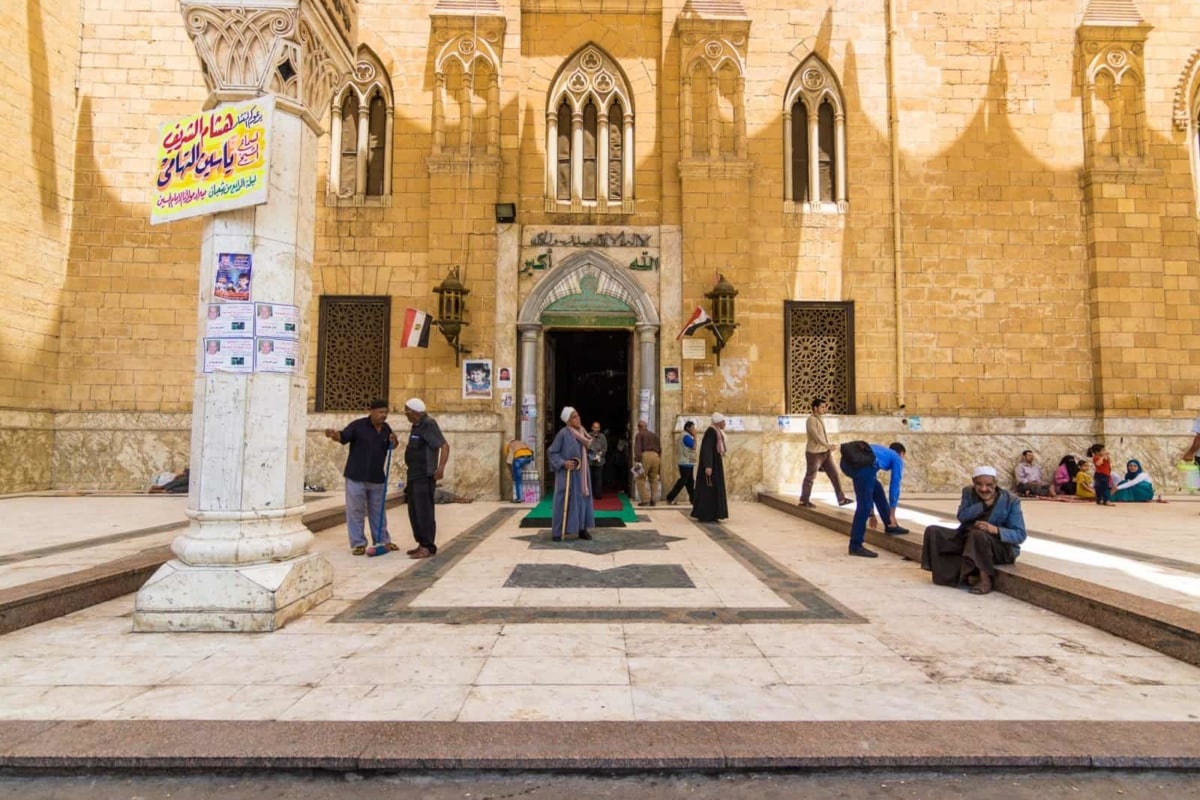
If you’re considering traveling to Egypt, I can offer you all the travel safety tips in the world, but this is the reality. There is conflict here, and you will encounter it in various forms. But that’s not to say you shouldn’t visit—I met many other travelers in Egypt from all over the world. I met solo female travelers, scuba fanatics, and other plain ol’ regular people.
No, Egypt is not your typical holiday. If you want to travel to Egypt and visit the Pyramids of Giza, you should be prepared for what is waiting for you. It’s an inside look at a very different region of the world, and an inside look at what’s actually happening in the Middle East.
But is it safe to travel to Egypt right now? The answer is somewhat tricky to explain.
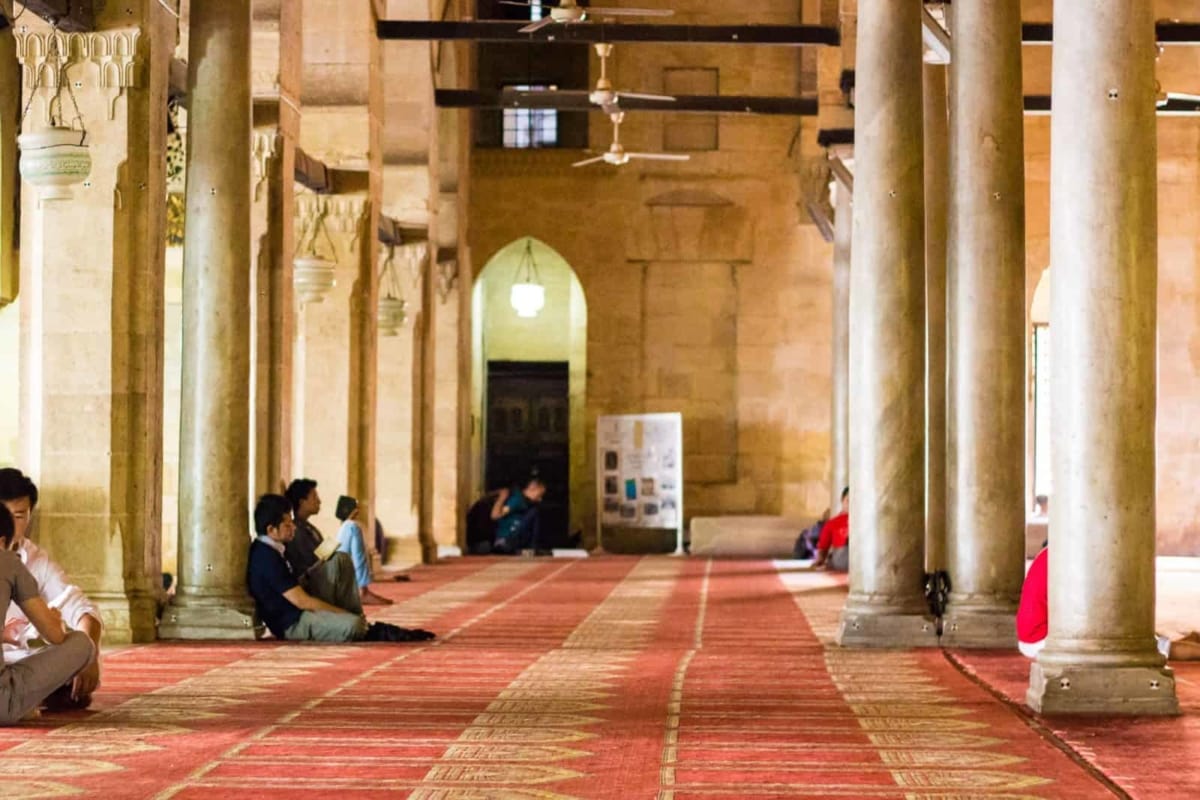
Is it Safe to Travel to Egypt?
Once upon a time, the triangular Sinai Peninsula in Egypt was a popular tourist destination for people from all over the Middle East and even Russia. They would come from Israel and Moscow to scuba dive, drink beer, smoke weed, and party on the beach.
However, these days, government websites mark the entire northern half of Sinai in blatant red. Many terrorist groups have been active in Egypt, and every travel warning for northern Sinai reads simply: “DO NOT TRAVEL.”
Though I believe many travel advisories to be over-exaggerated, the ones in Egypt should not be ignored. Point blank, northern Sinai should be avoided and southern Sinai should be traveled using caution. Once on the mainland, anything east of the Nile River is generally safe, while anything west should be traveled with prudence.
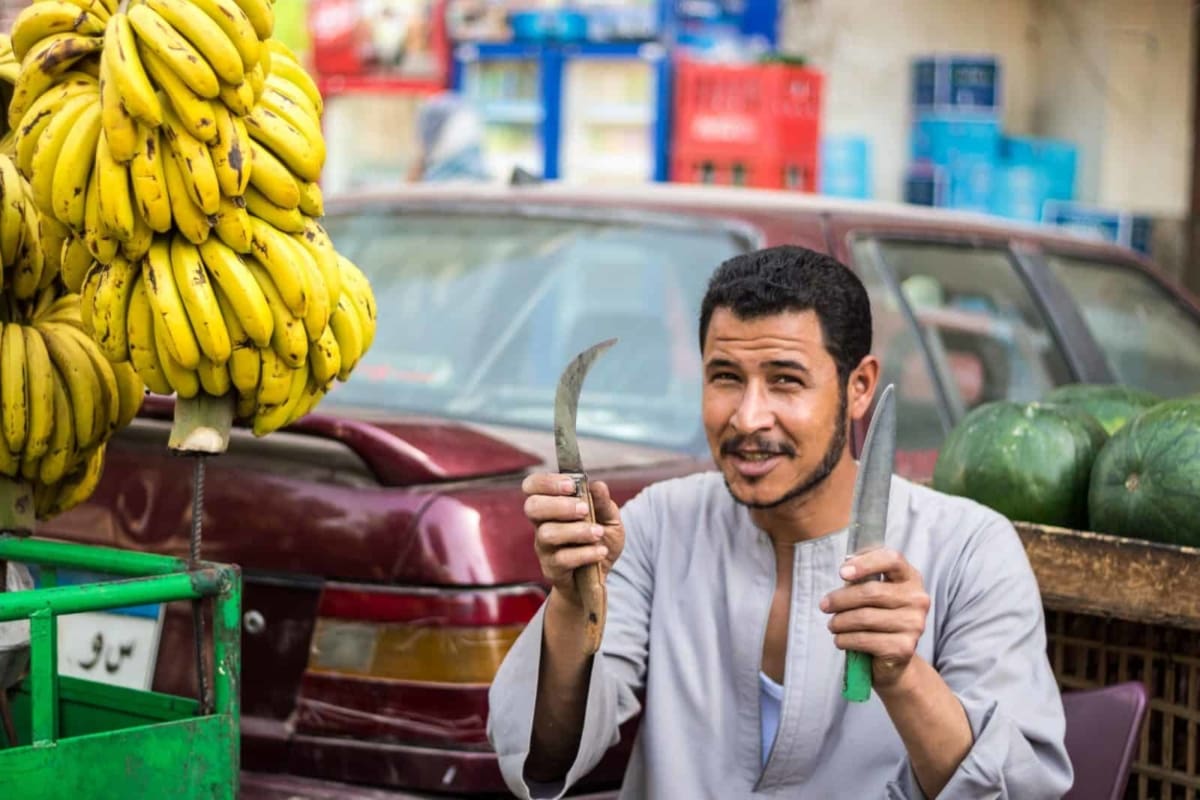
But I don’t mean to scaremonger. There are some regions which are not safe, but there are also regions where are perfectly fine. Look beyond the warnings.
What you should be focused on is where it is safe to travel, not where it is not safe to travel.
According to GOV.UK, “previous attacks have almost exclusively targeted the security forces, their facilities and other government buildings.” As a tourist in these areas, it’s unlikely that you’ll have any issues. But the warnings are clear, and anyone traveling in Egypt should at least be cautious.
Can I tell you it’s absolutely safe to visit Egypt? No, I can’t, because if you go there and die, it would be my fault. But I can tell you that I went there twice and I didn’t die. So, I guess you can make your decision based on that!
For more information on whether or not it is safe to travel to Egypt, consult your local embassy. (USA / UK)
If you are planning on traveling to Egypt—or anywhere in the world for that matter—travel insurance is your number one safeguard against anything that might go wrong. I always use World Nomads for ease of use, price and breadth of coverage.
If you’re planning to travel to Egypt, read our full World Nomads review.
Meeting Rami Elshaer
The first half of my travels in Sinai were done on my own. I had just one week in Egypt, but I was determined to make the most of it. In Dahab, for four days, I relaxed in beachfront hookah bars and went scuba diving at the famous Blue Hole.
This dive site, notoriously regarded as the most dangerous dive site in the world, has taken hundreds of lives over the years.
One extremely uncomfortable overnight bus ride later (screaming Arabic men included), and I found myself in the company of Rami Elshaer, a member of a Bedouin tribe who now lives in the city just 100 meters from the Pyramids of Giza.
It was an early morning in Cairo and we sat down at a local cafe for introductions, breakfast, and a Turkish coffee.
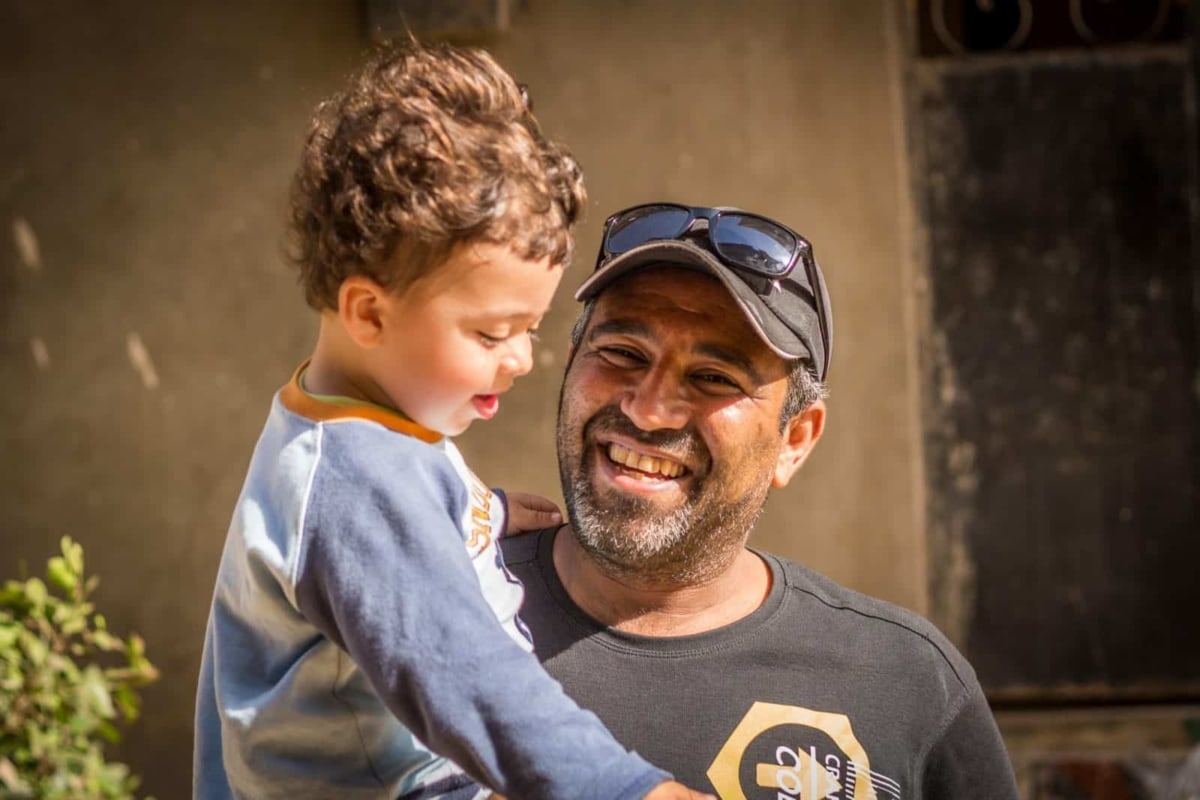
“When you are with me, you are my family, do you understand?”
Rami was explaining how his hospitality was going to work.
“Never take money out of your pocket. If you try to pay as a tourist, you will pay tourist prices. When I pay, I pay local prices. At the end of the day, you will pay me back. This is how it will work. Do you understand?”
I nodded.
“And I will do all of the talking. If you need something, just tell me, and I will make it happen. Do you understand?”
Rami was stern but fair. He cared. He knew how things worked and wanted to make sure I would get the most out of my time in Egypt.
In three short days, Rami became my Bedouin brother.
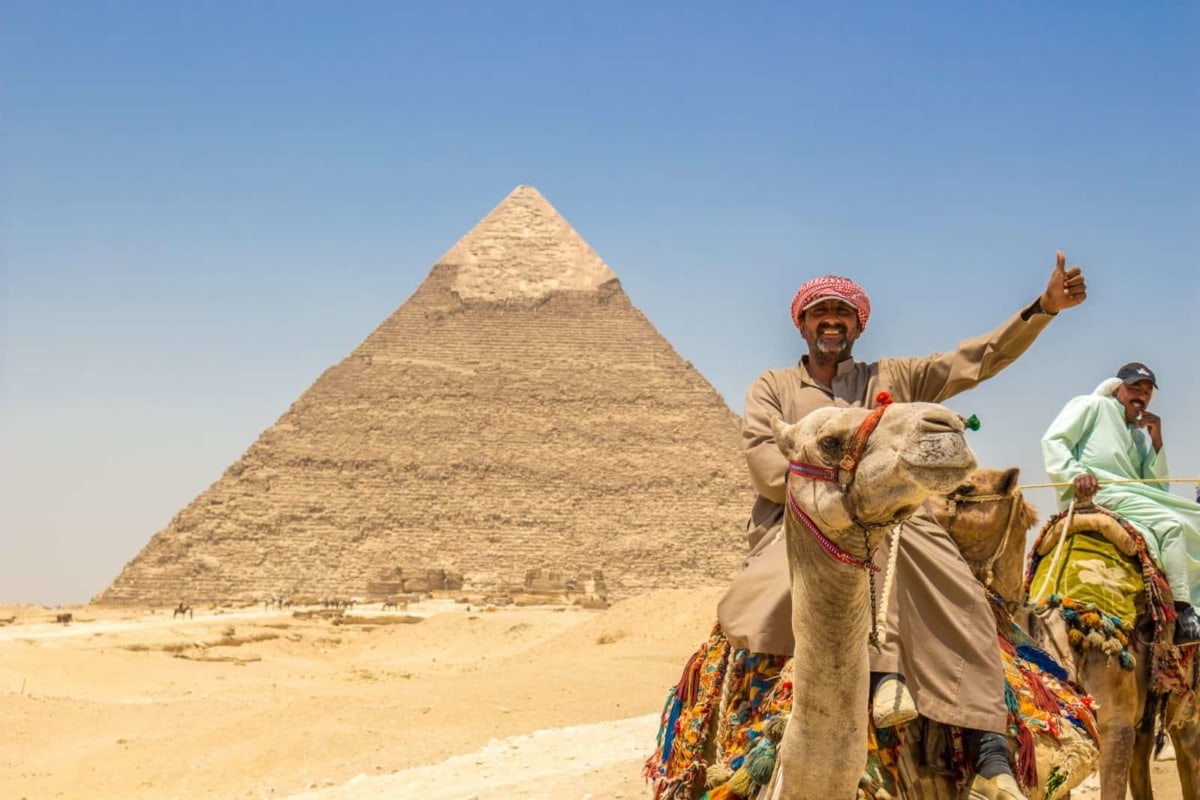
The Bedouins are a tribe of people who have been roaming the Middle Eastern desert for thousands of years. Literally translating to “desert dweller,” they are a highly respected group of people who are known for maintaining their traditional values and strong family bonds.
Rami didn’t like to tell people he was an Elshaer unless he had to. He just wanted to live out his life. But, as he explained, anytime he needed a government official to look the other way, one flash of his ID was all it took.
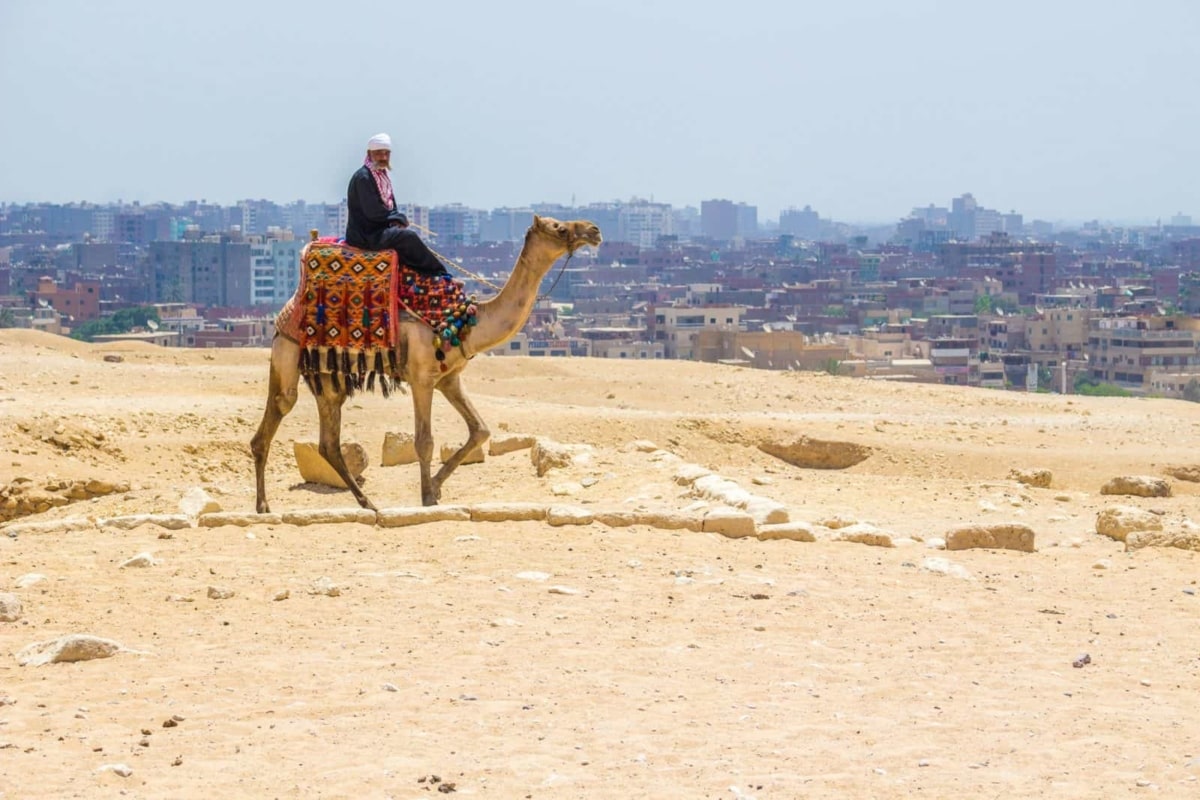
Rami’s father came from Libya and his mother from north Sudan and then Sinai. The Elshaer’s were among the first to settle by the Pyramids of Giza thousands of years ago, directing traffic and trade along the Silk Road, and they have remained here ever since.
It’s funny because everywhere I went with Rami, I met more cousins. More Elshaer’s. In Giza alone, I’m told his family numbers between 2,000-3,000.
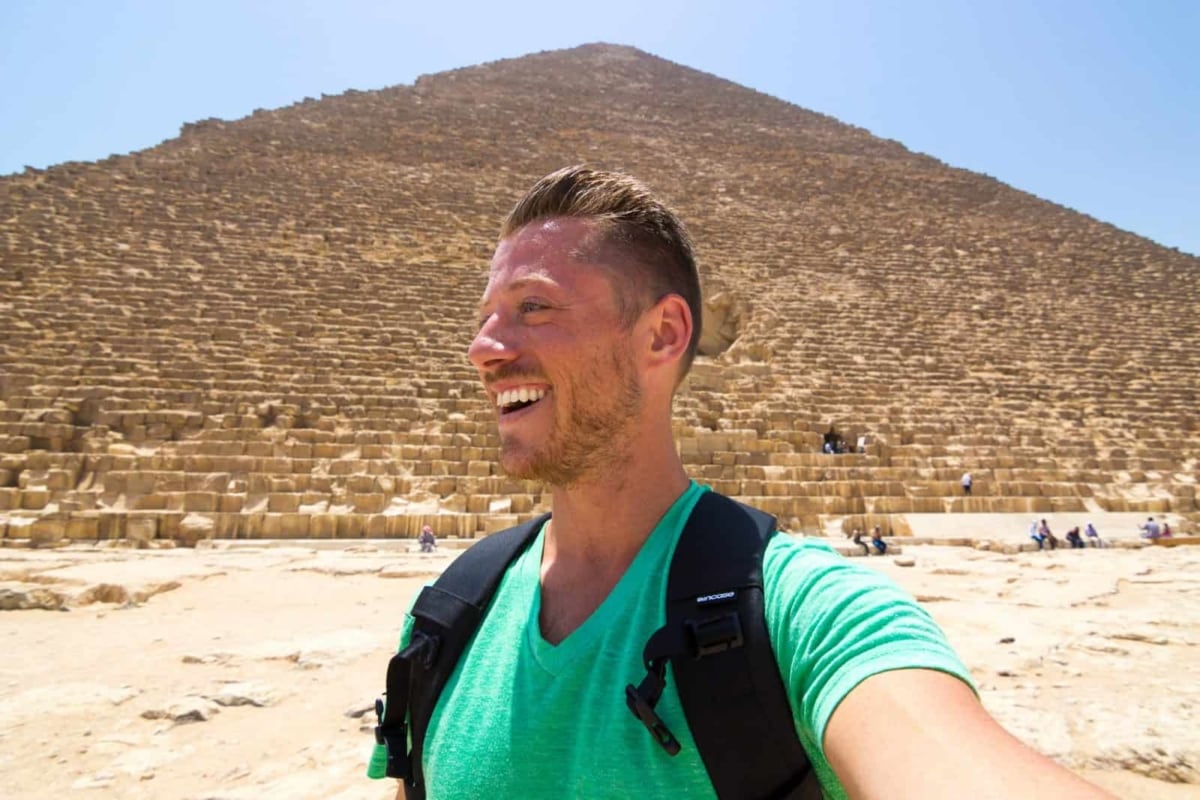
Rami paid for my Turkish coffee, took me to his home, provided me with a bed, and allowed me to dine with his family for three days straight.
When I found out that he would be sleeping on the floor, I insisted that he take his bed back and allow me to sleep there instead. He demanded not, and refused to allow me to sleep anywhere except the large bed in his small home, which was usually reserved for him and his young son, Loai.
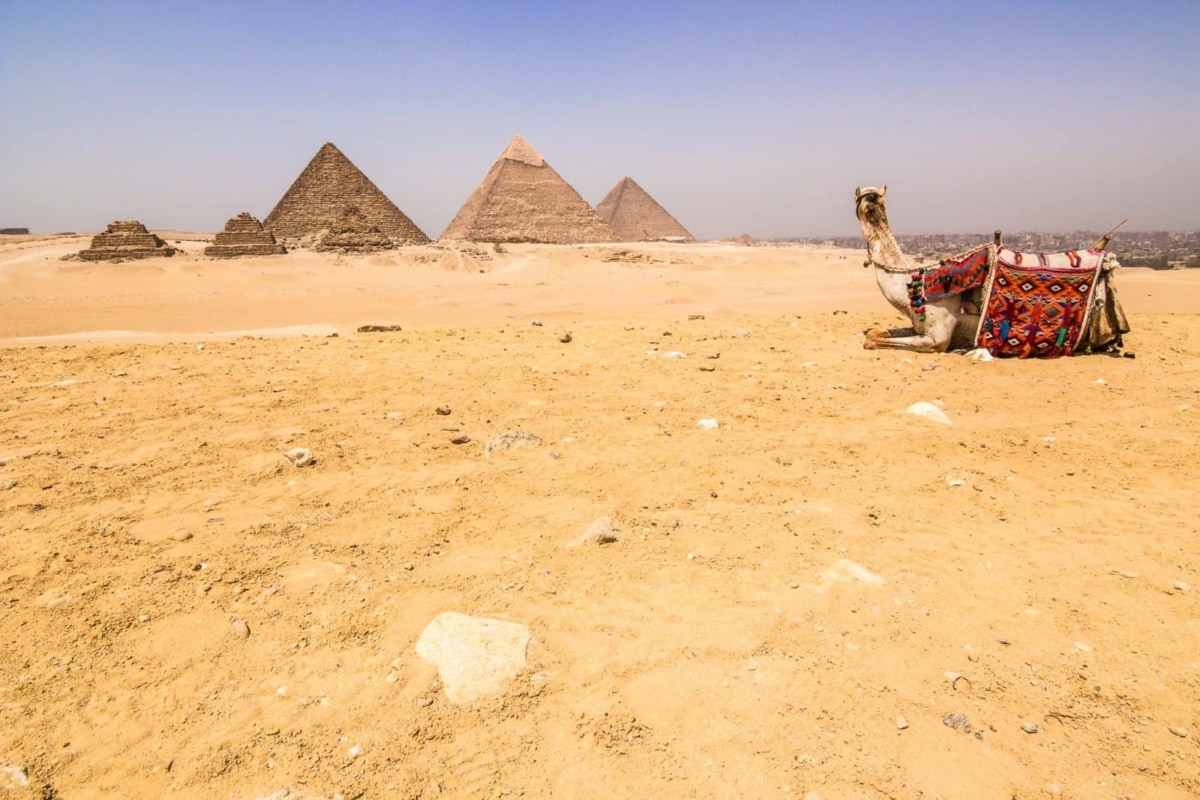
You see, as travelers themselves, the Bedouins are no stranger to providing hospitality. When I asked Rami why he hosted people from Couchsurfing, he told me of his international travels. He told me that the hospitality he received overseas was life-changing and that he wanted to dedicate much of his life to returning the same hospitality he had found.
Today, Rami spends his time raising his son, preparing barbecues for his family, and showing travelers the Great Pyramids of Giza.
Rami now goes back and forth between Egypt and Switzerland as he works to provide a better life for his son. If you wish to contact Rami, email him at [email protected]. Though he may not personally be able to meet you in Egypt (depending on his schedule), his family—all of whom I met—are happy to show you around and are some of the nicest people I’ve ever met!
